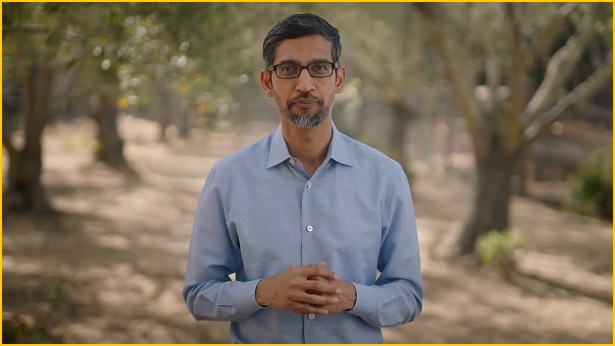Google will invest $14 billion in India amid a wave of money pouring into the country from tech giants.
Speaking at the Google for India virtual event on Monday night, CEO Sundar Pichai said the money – to be invested over five to seven years – would focus on making digital technology even more accessible for the hundreds of millions of billion Indians who are already online.
“When I was young, every new piece of technology brought new opportunities to learn and grow, but I always had to wait for it to arrive from someplace else,” Pichai said.
“Today, people in India no longer have to wait for technology to come to you. A whole new generation of technologies are happening in India first.”
Pichai said there were four areas for the $14 billion investment, including a focus on improving internet access in India’s many spoken languages, building uniquely Indian projects and services, helping businesses with digital transformation, and using AI for social needs like health, education, and agriculture.
“As we make these investments, we look forward to working alongside Prime Minister Modi and the Indian government as well as Indian businesses of all sizes to realise their shared vision of a digital India,” Pichai said.
Google’s cash splash is part of a wave of recent Silicon Valley interest in India.
In January, Amazon announced its own billion-dollar investment in India – with a focus on helping small and medium enterprises digitise.
And last month, India’s competition watchdog approved Facebook’s whopping $8.2 billion investment in Indian telco Reliance Jio Platforms.
The investment gives Facebook a 9.99 per cent stake in the firm which owns India’s biggest mobile network.
At the time of the announcement, Facebook CEO, Mark Zuckerberg, explained how the investment would help protect Facebook’s interests.
“India is home to the largest communities on Facebook and WhatsApp, and a lot of talented entrepreneurs,” Zuckerberg said in a Facebook post.
“The country is in the middle of a major digital transformation and organisations like Jio have played a big part in getting hundreds of millions of Indian people and small businesses online.”
Since 2015, India has been undergoing a government-directed digital transformation called ‘Digital India’ that aims to bring more of its citizens, businesses, and government services online.
Boosted investment could help Silicon Valley secure a foothold in India’s growing digital economy at a time when the country is veering away from Chinese-owned services.
Two weeks ago, the Indian government announced a blanket ban on 59 Chinese apps including video sharing platform TikTok, citing data privacy concerns.
But closer relationships with the likes of Facebook could mean greater government control of private information, as the Indian Ministry of Electronics and Information Technology revealed plans to force tech companies to help identify users of encrypted chat services earlier this year.










